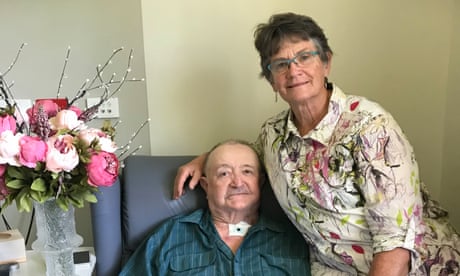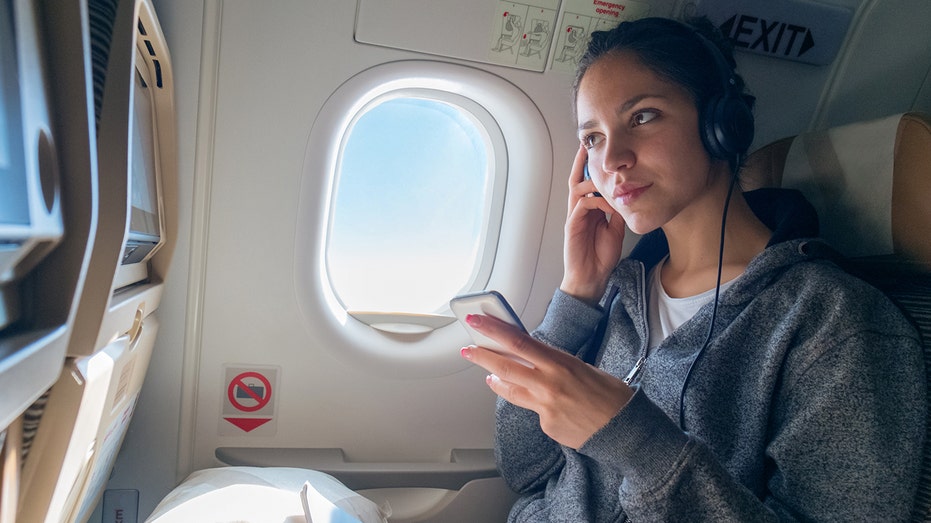- by foxnews
- 09 Mar 2025
‘Hanging vulnerable people out to dry’: Covid stretches rural Australian health services to breaking point
‘Hanging vulnerable people out to dry’: Covid stretches rural Australian health services to breaking point
- by theguardian
- 14 Jan 2022
- in news

Jim Goldsmith has had no visitors in the long-stay section at Coonamble Multi-Purpose Service since the Thursday before Christmas.
It was the day he turned 79 and his wife Pam's Covid-19 test came back positive.
At the end of 10 days of Covid-19 illness, Pam received medical clearance from NSW Health. But she still needed to show a negative PCR test result to see her critically ill husband of 52 years.
Eight days after she took the PCR test on 5 January, Pam still had not received the results.
Enquiring after her results a week after she took the first test, Pam was told to come and do another PCR test at the Coonamble MPS on 10 January and the results would be fast-tracked. She had not received the second test results by Friday either.
This is the reality of a sluggish health system in regional and rural Australia, where Covid-19 PCR and rapid antigen tests are hard to access and there are long delays receiving results. It is separating families and exacerbating issues within stretched health services.
Their daughter Kim Goldsmith wants to know who is responsible because she fears many vulnerable people like her father have been hung out to dry.
"Despite Omicron being rampant in Coonamble, Dad still hasn't had his booster. I'd love to know who's responsible for this. It's hanging vulnerable people out to dry," Kim said.
Jim contracted necrotising fasciitis, a flesh-eating bacterial infection, in his neck on 4 December 2020, which required multiple surgeries over several months to remove all the affected muscle, and subsequently 24-hour care.
Kim Goldsmith says her mother has been going to the MPS every day for several hours because the service was so short-staffed they relied on her to feed him through a Picc line (peripherally inserted central catheter).
"The nurses at the hospital had become so reliant on Mum being there to feed him and take care of him that when she didn't turn up, she'd turn up later and discover he hadn't been fed for two hours beyond the allocated time," Kim Goldsmith says.
The late feeds, according to Kim, cause complications in his digestion.
Because of Jim's diabetes, he also has failing eyesight and can't read and struggles to see things on TV. "It's a pretty lonely existence," Kim says.
Before the Omicron outbreak, Jim was allowed day releases on a semi-regular basis where family members could take him home for the afternoon or out for a drive, allowing him to get out and see the country, occasionally run into somebody and have a yarn.
"It was like getting close to what the old life had been. And he absolutely hated going back to the hospital every afternoon."
Since the latest Covid-19 outbreak Jim is no longer allowed day release, and families can only nominate one approved visitor. "Now it's only Mum and even she can't get in," Kim says.
The family is especially concerned, she says, as her father has struggled with mental illness ever since he became ill.
In the last few days Jim has developed an infection on top of his critical illness, which Kim Goldsmith says is the second time her father's condition has deteriorated with an infection as a result of an extended period of isolation.
During the winter lockdown in western NSW, Pam was unable to see Jim for six weeks until the lung infection he developed saw him moved to palliative care.
"Mum was able to suit up and come and go in and spend two hours with him and then all of a sudden he got better and they put him back into long-stay and back to no visitors," Kim Goldsmith says.
"You've literally got to be dying to have any social stimulation in the situation," she says.
Following Guardian Australia's media enquiry, Pam Goldsmith has been given permission to see her husband regardless of the outcome of the PCR test as long as she follows normal Covid-safe protocols going through the hospital on Friday 14 January.
Kim Goldsmith says her mother isn't sure if the drugs kicking in had helped or the knowledge of her visit the next day, but Jim's voice sounded better than it previously has.
In a statement to Guardian Australia, a Western NSW Local Health District (WNSWLHD) spokesperson says the safety of patients and people living in residential care is at the centre of infection and control guidelines.
Currently, visitor access is restricted at Multi-Purpose Services in Western NSW Local Health District to one visitor per visit.
"PCR testing and proof of a negative result is not a requirement to visit aged-care residents at Multi-Purpose Services. Visitors are screened and risk-assessed on entry. Confirmed cases of Covid-19 or anyone who has been identified as a close contact in the previous 14 days are not permitted entry to facilities," the spokesperson said.
"WNSWLHD is looking into the circumstances with staff and the Goldsmith family, and we sincerely apologise for any inconvenience caused."
The spokesperson said WNSWLHD healthcare teams were dedicated to providing the best care possible for patients and aged-care residents and staff were doing everything possible to maintain social and family connectivity, while also protecting the safety of patients, residents and staff.
"The furloughing of staff to comply with isolation requirements, annual leave across the holiday period, and the impact of Covid-19 on vacation and childcare arrangements have all placed pressure on staffing availability, however the WNSWLHD has maintained continuous service delivery at all facilities across the District.
"Pathology providers are working tirelessly around the clock to ensure Covid-19 tests results are returned as soon as possible. Testing capacity across NSW remains under enormous pressure. The high rate of positive PCR tests has required a more time consuming approach to the way the laboratories confirm the test samples. We thank the community for their patience," the spokesperson said.
- by foxnews
- descember 09, 2016
'Speaker scum' on flights sparks debate among travelers: 'This is getting out of hand'
A traveler asked social media users to weigh in on flyers who play audio aloud on their devices and don't use headphones.
read more


